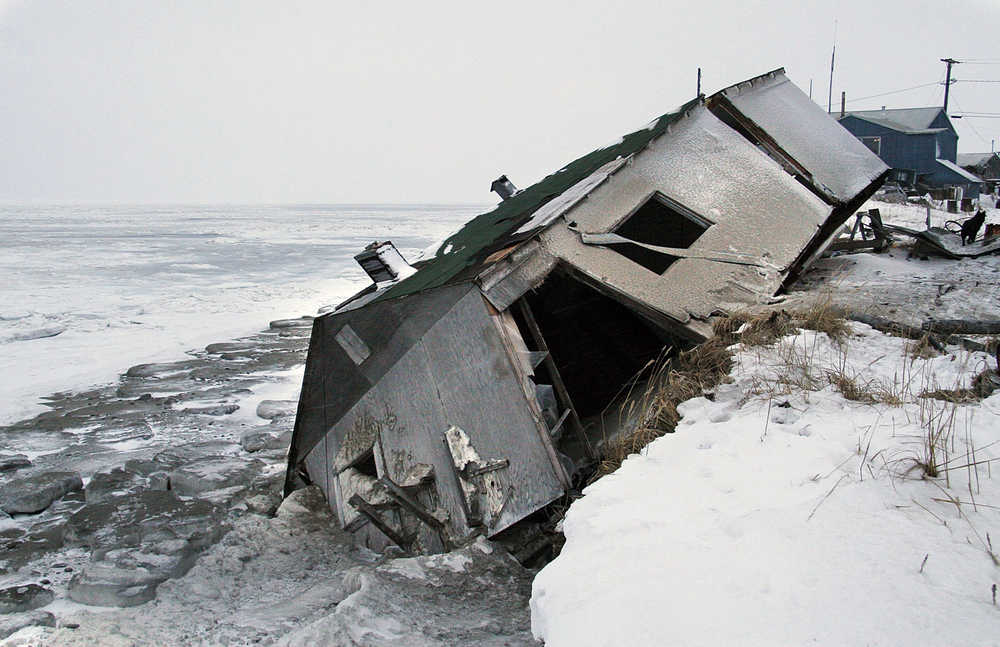ANCHORAGE — Residents of a tiny island village in Alaska that has been ravaged by erosion blamed on climate change have voted to move to the mainland, but there likely isn’t enough money for the impoverished community of just 600 people to follow through on the decision.
The Inupiat Eskimo village of Shishmaref, which sits just north of the Bering Strait, has been identified as one of Alaska’s most eroded communities.
Officials held a special election Tuesday asking residents if they should develop a new community at a nearby mainland location or stay put with added environmental protections. Unofficial ballot returns show 89 voted for the move, while 78 opted to stay. A city clerk said the count does not include absentee or special needs ballots.
Either option comes with a daunting price tag. A 2004 Army Corps of Engineers study put the cost of relocating to the mainland at $180 million. Staying in place would cost $110 million.
The village has been exploring relocation since the mid-1970s. It also voted to move in 2002, but money also was an issue then.
Tuesday’s vote likely amounts to an advisory opinion. A feasibility study released in February looked at all potential options. It suggested the vote would allow agencies that may provide funding to move forward with further research on how best to save the community.
Shishmaref Mayor Howard Weyiouanna Sr. told The Associated Press last month that some sort of solution must be found.
“Doing nothing is not an option,” he said.

